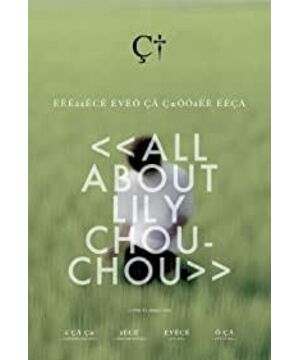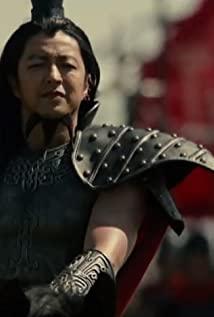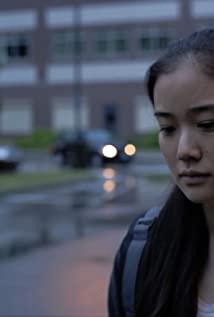The film abandoned the narrative since "Love Letter" and "April Story" and tried a different approach. One is to rely on text annotations as a supplement to the narrative. As the carrier of audition, most directors rely on camera scheduling to complete the narrative. Although there are also directors such as Wong Kar-wai who rely on narration, they are basically inseparable from the scope of audition language. In "All About Lily Zhou", Shunji Iwai relied on the coat of online chat and implanted a large number of "text narration" as a supplement to the narrative.
This technique reminds the author of Anno Hideaki's play ticket in "EVA", and also reminds me of Morita Yoshimitsu's "Internet chat-style" narrative in "Spring Love Letter". But the difference is that Iwai Shunji's "text narration" occupies a large proportion in the plot narrative. On the one hand, the plot can also be independent from the camera; This kind of narrative has high requirements on the audience. Generally speaking, it is difficult for the first-time viewer to fully grasp the information in it. It often takes multiple viewings to accurately grasp the information of the camera language and text narration. Filia and Qingmao's online and offline communication psychology has very important hints. Only by understanding this can we understand Hasumi's final killing intent and despair.
The second is the use of relatively common non-linear narratives. For related techniques, see Quentin's Pulp Fiction. Through flashbacks and flashbacks, Iwai makes the growth trajectories of the protagonists piecemeal. This operation may be Iwai's pursuit, but objectively it enriches the layering of the film, makes the story more mysteries, and makes the film more dazed. Since Hoshino's mutation is more or less abrupt, the use of non-linear narrative can reduce the sense of abruptness.
Due to the mixed use of many narrative techniques, the lens language of the film becomes simple. As long as the picture is good-looking, coupled with the continuous OST of the whole film, and the continuous editing of the plot, the whole film is more like a depression. Sad music mv. The emotions of characters that are difficult to be explained by the camera are annotated through online text narration. The fragmentation of the plot allows the audience to have the fun of solving puzzles in the process of watching. From the perspective of listening to the language alone, this is naturally a kind of laziness, but it is undoubtedly a skill for Iwai to make a movie into this interesting, game, and multi-text MV style.
Skill is one thing, but what exactly does such a skill show? In most people's terms it can be called "brutal youth". It is true that under the lens of Shunji Iwai, the depressive, desperate and dark youth makes people sigh. Unforgettable emotions viewers can feel yes, but the question is whether the emotion is real? Does such a dark spring come from real life? From the author's feelings, the plot is only created by Iwai, only to create a script and story that can fit the narrative of the movie. Therefore, the second part of the plot is false and lacks realism, so it is difficult to resonate with emotions, because This is a virtual world that the audience has never been exposed to. What emotion is there to speak of? So the narrative of this movie is still suitable for a better script.
View more about All About Lily Chou-Chou reviews











